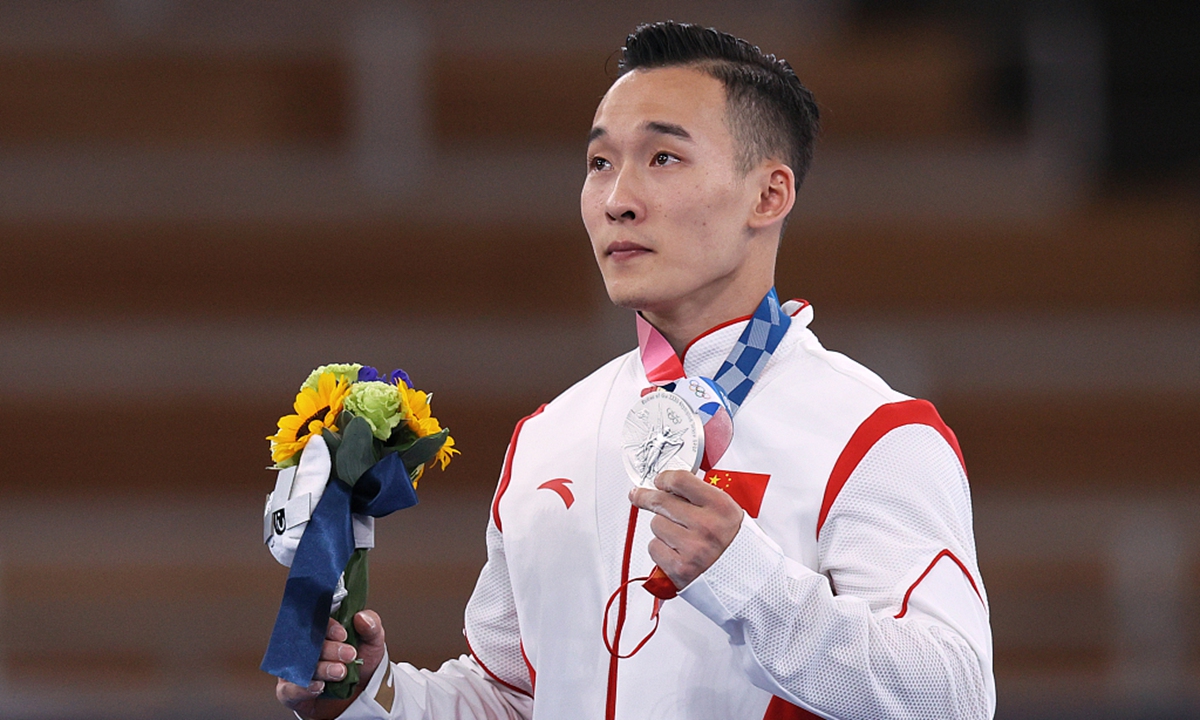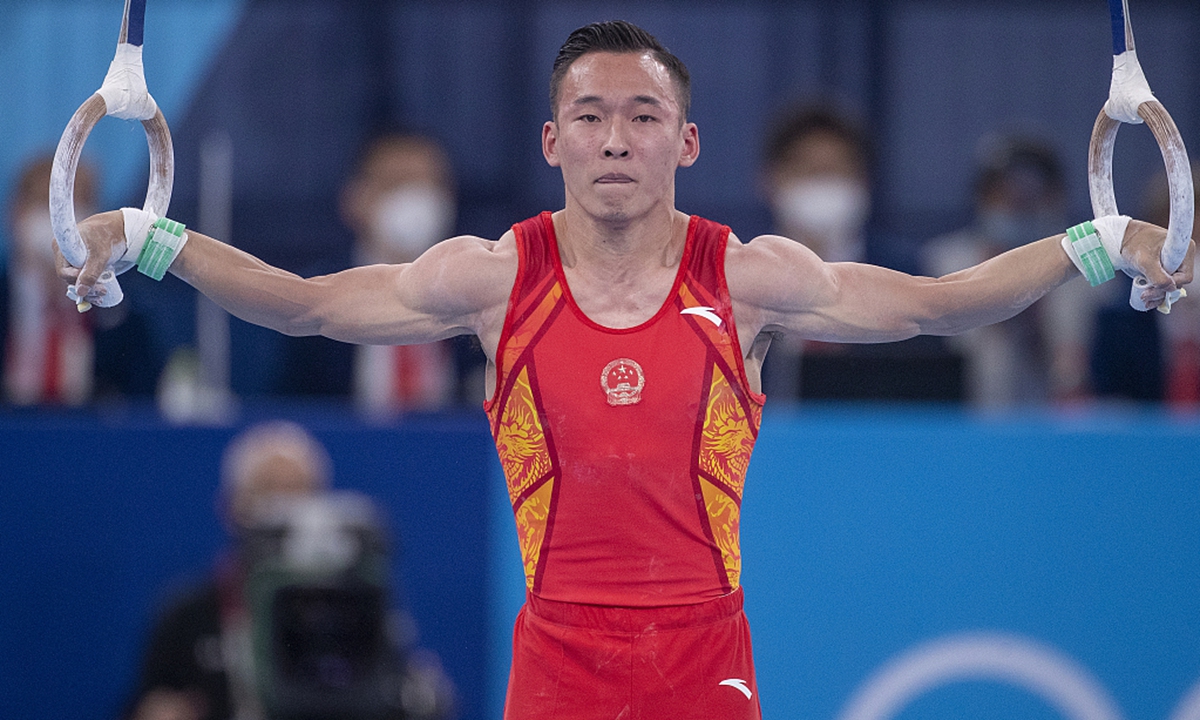China's Olympic silver medal gymnast calms fans suspicious of Indian referee favoritism, shows friendship with Japanese athletes
True Olympic spirit respects rules and referees: expert

Photo: VCG
Chaos on the controversial men's gymnastics all-around competition settled after Chinese gymnast Xiao Ruoteng, who lost to Japan's Daiki Hashimoto due to alleged "panel favoritism," posted on social media on Thursday to thank people for their support but ask supporters to be rational and not to attack other athletes.
A lot of Xiao's fans felt cheated by the referees and host nation Japan, believing that Xiao was marked lower than what his performance deserved, especially as Hashimoto made an evident fault during the competition.
Xiao lost the gold to 19-year-old Hashimoto by falling 0.4 points short of his 88.465 score on Wednesday night. Xiao made a steady landing in vault, while Hashimoto made a shaky landing with one foot out of bounds, leaving Xiao 0.2 points ahead. However, Xiao's supporters believe he should have been given higher marks.
Although deputy leader of Chinese Gymnastics Team Ye Zhennan told media that Xiao was "deducted 0.3 points as he did not stand at attention to judges to indicate his movement had finished," and congratulated the Japanese athletes, some internet users suspected whether Indian referee Deepak Kabra, who once said on Twitter that "someone should stop them [China] from a clean sweep" during the Military World Games in Wuhan in 2019, was to blame for what they said the faulty scores.
"Everyone in the world has different opinions, athletes have theirs too… And it was great to get the recognition from supporters... But I hope people don't attack other athletes, who have fought hard for their goals," Xiao said in a Sina Weibo post on Thursday, in which he added photos with Japanese and Russian athletes on the podium.

Photo: VCG
In an interview with Sina Sports on Wednesday, Xiao said he would not deny his efforts, as he showed the spirit of Chinese athletes through the Olympic Games. "I don't hate the champion. We're just athletes," Xiao told Sina Sports.
Compared to his first Weibo post after the match, under which netizens criticized the referee and the Japanese athletes, many praised Xiao for his generosity in the post above.
"You are the champion in my heart. Great athletes have superb skills but also excellent and admirable work ethic and character, and you have them all," an internet user said.
Wang Dazhao, a Beijing-based sports commentator, told the Global Times on Friday that disputes over refereeing decisions at the Olympics are not uncommon, and "they are part of the Games."
"Spectators see a player's mistake, not necessarily in the rules, and think the penalty is more severe. In gymnastics with sophisticated rules, it is almost impossible for audiences to understand it clearly, and they can only follow their preferences and emotions," Wang said, noting it happens not only in China, but also in other countries.
"There is no need to put the Olympics on the table of parochial nationalism and bashing, which is against the Olympic spirit," said Wang. "Viewers need to understand what is to be maintained and promoted in the Olympics and what is not to be allowed."
Japan's Jun Mizutani and Mima Ito won their country's first Olympic table tennis gold medal after beating the much-anticipated Xu Xin and Liu Shiwen of China in the mixed doubles final on Monday. The Japanese pair, especially Ito, were then disliked by some Chinese netizens as her celebrating and gestures looked arrogant.
At the awarding ceremony of the table tennis women's singles final on Thursday night, China's winning paddler Chen Meng invited bronze medalist Ito to take a photo together, showing a sign of friendship.
Many athletes have encountered "unfairness" in the eyes of the audiences; however, as athletes, to obey the referee decision is the minimum requirement of the competition. Respect for the referees and the rules are a quality that players should have, Wang said.
Some experts said that many major world gymnastics competitions, which have similar referee standards to the Olympic Games, have been cancelled in the past two years due to the COVID-19 pandemic. Athletes may therefore have lost a reference and the opportunity to adapt to the referees in advance, causing uncertainty in the Games.

